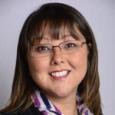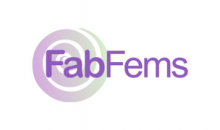School Counselors Foster Representation in Career Counseling Lessons
In this country, we tell our children, “If you can dream it, you can be it.” But that is simply not true if we are not providing gender-inclusive lessons and role models for our children to see themselves in every career. Our children are surrounded by messages in the media about who is “right” for certain careers. Do an internet search for specific careers, and you’ll immediately spot the gender divide. Who can combat these messages? And how?
Did you know that school counselors are advocates for equity on every level? They believe that every child should have the opportunity to explore, learn, dream, and succeed in Academic, College and Career, and Social Emotional Development Domains. Students should have role models they can relate to, and often that means someone who looks like them or has had a similar life experience. School counselors play a critical role in promoting positive role models and inclusive language around careers.
“School counselors are committed to equity and support consciousness-raising within their profession including modeling of inclusive language and equal opportunity for all to break through stereotypical gender-based behaviors and expectations. School counselors actively advocate for equitable policies, procedures, practices and attitudes that embrace equity in opportunities and access to resources for all students and colleagues.”
— The American School Counselor Association’s Position Statement
“The School Counselor and Gender Equity.”
Research indicates that students begin to solidify their gender stereotypes around ages 4 - 6-years-old and the best way to combat that is for adults to provide examples that defy traditional gender norms. Three Master’s students in School Counseling at the University of North Carolina Greensboro noticed a lack of resources available to school counselors to provide elementary school-aged students with gender diverse examples of professionals. Paige Alven, one of the authors of the “Gender Positive Career Exploration Resources for Elementary School-Aged Students Handbook,” notes, “Our hope with targeting elementary school staff is to begin the dialogue around career development as early as possible in childhood. It may be harder to imagine promoting college and career readiness at the elementary level compared to the high school level, so we hope these resources can be used to increase confidence in a student’s unique abilities and strengths while allowing for space to explore these interests in an open, validating environment. We also saw this handbook as an opportunity to advocate and increase the visibility and acceptance of the counseling profession.”
“It is important for there to be representation in everything we use as school counselors so all students are exposed to examples of different kinds of people being the hero, the professional, the friend. It not only sends the message to traditionally underrepresented students that they have the ability to fulfill such roles, but also the other students who ought to know those students can do so as well,” said Katie James, another author on the aforementioned handbook. “We took this opportunity to not only make this handbook for counselors’ use, but it also gives teachers and other staff the chance to make this gender positive experience a school-wide initiative. The gender divide may be evident in our media, but as leaders in the school community, school counselors can make a difference in students’ lives and change the attitudes once held about gender and career opportunities,” added Julia Jefferson, also an author of the handbook cited above.
Can a single school counselor with an average caseload of 464 students effect change on such a large scale? Yes, especially when they use teaching materials that integrate inclusive gender roles and representation across the spectrum of diversity into career lessons! Counselors also partner with organizations like the National Girls Collaborative Project to connect with speakers and role models in the FabFems directory. Many people don’t realize that school counselors at all grade levels are addressing career exploration, and often this is through classroom lessons, career days, and career fairs. Counselors know that simply relying upon families of students may not result in diverse representations of careers. Therefore, counselors think strategically about the role models they invite to schools and consider how to curate the list. Fortunately, the FabFems directory provides an easily searchable way to find role models of those who are traditionally underrepresented in the STEM fields. Search by state and narrow it down by who is local to your area to find speakers who are available for in-school visits, after-school activities, job shadowing, and more.
“Education is for improving the lives of others and for leaving your community and world better than you found it. Service is the rent we pay for being. It is the very purpose of life, and not something you do in your spare time. You really can change the world if you care enough.”
— Marian Wright Edelman, founder and president of the Children's Defense Fund
School counselors know that you “You Can’t Be What You Can’t See.” That is why they are breaking down barriers to career opportunities and building pathways so all children can see themselves in every career. Simply put, representation matters. When school counselors tell children, “If you can dream it, you can be it,” they back that statement up with resources, role models, and representation.




